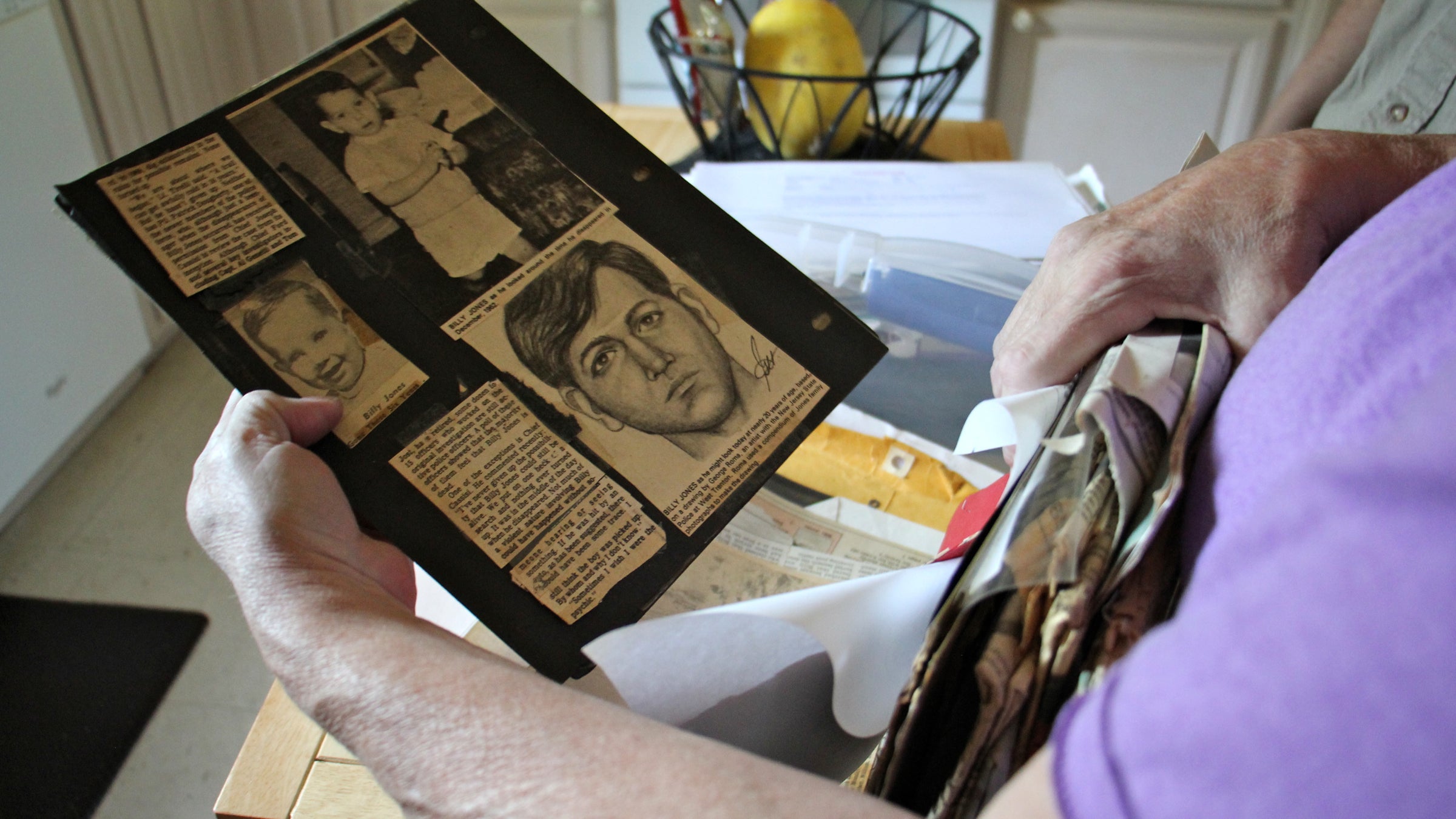N.J. state police to host event for families of long-term missing persons
Listen
Jill Jones Neville looks through newspaper clippings about the disappearance of her brother, Billy Jones, more than 50 years ago, when he was three. (Emma Lee/WHYY)
Right now in New Jersey there are 1,025 long-term missing persons, whose cases are so confounding that they have gone unsolved for years or even decades, leaving family members hanging in emotional limbo and detectives itching for leads.
The state police hope that an event on Saturday will help bring healing to some of those families — and possibly generate new leads in old cases.
“Missing in New Jersey” aims to bring together New Jersey residents who have missing family members so that they can meet other people in similar situations, forming something of an informal support group.
The event, which will be held at Rutgers University in New Brunswick, will offer free support services for family members of missing persons, including grief counselors, comfort dogs, FBI victim specialists, and representatives from Team Hope, a national nonprofit for families with missing children.
“When you have a murder, you have a body on the street. You have a funeral. When you have a burglary, you walk in your house and your TV’s missing. You have something that’s gone and you kind of know what happened,” said Detective Sgt. Trella, one of four detectives in the state police missing persons unit. “With a missing person, especially a long-term missing person, the family normally doesn’t have any idea what happened to their … loved one.”
Of the roughly 15,000 missing persons cases that occur statewide each year, Trella’s unit gets involved in the 400-500 most complex disappearances.
“We’re not looking to solve a crime,” said Lt. Louis Andrinopoulos, who has been with the missing persons unit for 11 years. “We’re looking to give closure to a family.”
But some cases, that go years without a new lead or shred of evidence, can get very cold.
That’s why the state police are also encouraging biological relatives of the missing to attend Saturday’s event and offer up a DNA sample. The unit will submit the samples to a database at the University of North Texas, which tries to match DNA against unidentified remains nationwide. It does not cross-pollinate with the criminal DNA database.
State police also said that they would not be checking anyone’s immigration status at the event, hoping that people in the country illegally who have missing relatives feel safe to attend.
Although law enforcement officials are hoping the event may open some new doors in their investigations, they say the main goal is to support the families members who never stop carrying the emotional burden of a missing loved one.
For Jill Neville, whose three-year-old brother Billy Jones went missing in 1962, the feeling of loss has lingered for 55 years.
“It’s the not knowing,” she said, “that’s the hardest thing.”
Neville, who was two years old at the time she says Billy was abducted, still holds out hope that her older brother is alive. But she acknowledges that the odds of finding him are slim.
“It’s like this brick wall,” she said. “I’m in front of it and he’s behind it. But I don’t know what brick to take out to find him.”
WHYY is your source for fact-based, in-depth journalism and information. As a nonprofit organization, we rely on financial support from readers like you. Please give today.




